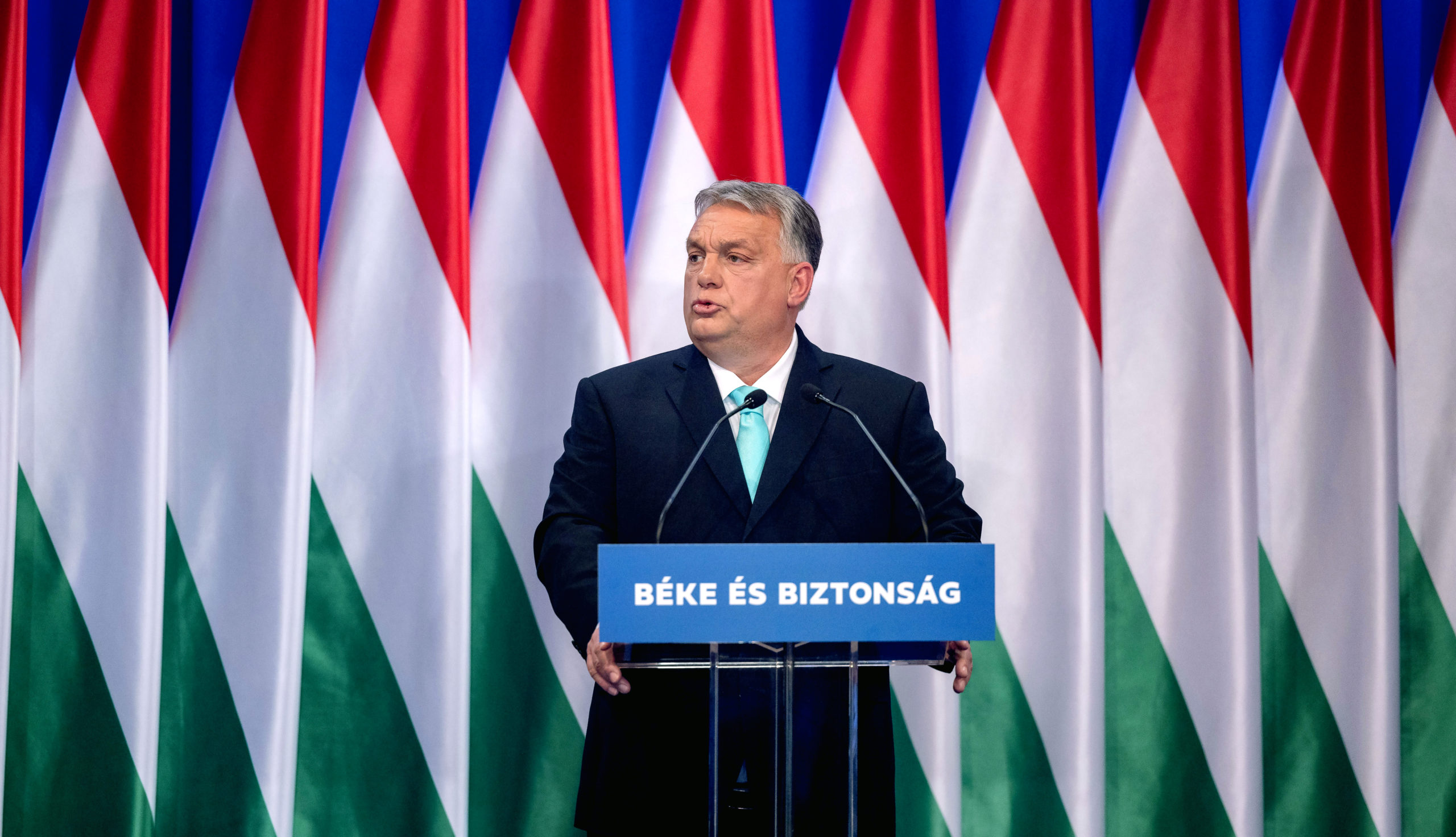While Western leaders gathered at the Munich Security Conference this weekend to reaffirm their commitment to helping Ukraine defeat Russia, the Hungarian president was pushing a very different interpretation of the war. In a State of the Nation address by Viktor Orbán, the Hungarian leader accused the West of a lack of interest in peace and alleged a collective rejection of negotiations with the Kremlin.
In Munich, attitudes to the war varied among Western leaders. On one side, Olaf Scholz berated allies for their slowness in sending heavy armour to Ukraine, while US Vice President Kamala Harris accused Russia of “crimes against humanity”, promising that those responsible will be “held to account”. Emmanuel Macron took a more nuanced line, arguing that Russia must be “defeated , not crushed.” And Viktor Orbán claimed that “only Hungary and the Vatican” remain interested in peace in Europe.
Germany’s departure from the “peace camp” since Russia’s invasion began has, for Orbán, been the crucial factor in the war’s escalation to a “pan-European level”. He suggested that if Angela Merkel were still Chancellor, the war would have been defused quickly or prevented altogether, praising the “brave” Minsk agreements for having aimed at “peace instead of war.” Now, he said, Germany is sending Leopard tanks “rolling eastward across Ukrainian soil, towards the Russian border”.
Orbán implied that Berlin’s newfound militancy must be the result of “external pressure”, saying it’s “hard to believe that the Germans took this turn of their own accord”.
He then criticised two fundamental assumptions underpinning the West’s commitment to total Ukrainian victory. The Hungarian PM classified the war as a “conflict between two Slavic states”, saying that it is “their war, not ours” and reiterating the common Hungarian belief that the Ukraine war is not a moral struggle between good and evil.
He also critiqued the notion, mostly promulgated by his fellow Eastern European leaders, that Russia is bound to invade the ex-Soviet Baltic states which are now part of NATO if it can achieve success in Ukraine. Orbán claims this claim is risible, pointing out that “as far as conventional warfare is concerned, the Ukraine war has shown that Russia would not stand a chance against NATO.”
The only real threat of a NATO-Russia conflict is, Orbán believes, the potential use of nuclear weapons, and he argues that the West’s refusal to negotiate a ceasefire in Ukraine is only “increasing the chance of their use”.
By contrasting so markedly with the uncompromising rhetoric in Munich, Orbán’s speech was aimed at a domestic audience and designed to reinforce Hungarian perceptions that far-removed Western leaders are scheming to prolong the war in Ukraine at the expense of the wellbeing and long-term security of ordinary European citizens.










Join the discussion
Join like minded readers that support our journalism by becoming a paid subscriber
To join the discussion in the comments, become a paid subscriber.
Join like minded readers that support our journalism, read unlimited articles and enjoy other subscriber-only benefits.
Subscribe